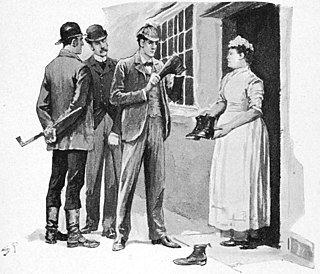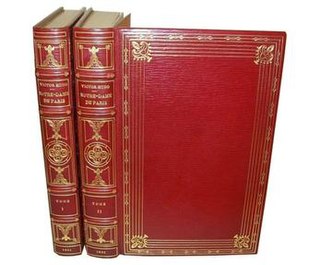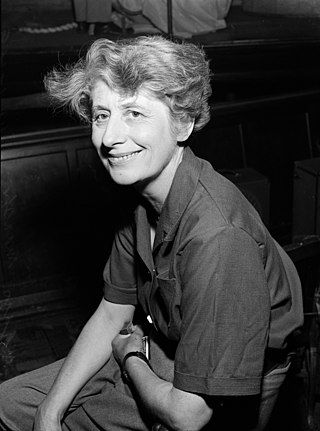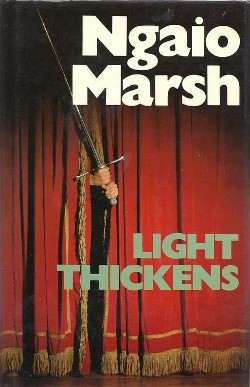
Detective fiction is a subgenre of crime fiction and mystery fiction in which an investigator or a detective—whether professional, amateur or retired—investigates a crime, often murder. The detective genre began around the same time as speculative fiction and other genre fiction in the mid-nineteenth century and has remained extremely popular, particularly in novels. Some of the most famous heroes of detective fiction include C. Auguste Dupin, Sherlock Holmes, Kogoro Akechi, and Hercule Poirot. Juvenile stories featuring The Hardy Boys, Nancy Drew, and The Boxcar Children have also remained in print for several decades.

Historical fiction is a literary genre in which a fictional plot takes place in the setting of particular real historical events. Although the term is commonly used as a synonym for historical fiction literature, it can also be applied to other types of narrative, including theatre, opera, cinema, and television, as well as video games and graphic novels. It often makes many use of symbolism in allegory using figurative and metaphorical elements to picture a story.

The Hunchback of Notre-Dame is a French Gothic novel by Victor Hugo, published in 1831. The title refers to the Notre-Dame Cathedral, which features prominently throughout the novel. It focuses on the unfortunate story of Quasimodo, the Roma street dancer Esmeralda and Quasimodo's guardian the Archdeacon Claude Frollo in 15th-century Paris. All its elements—the Renaissance setting, impossible love affairs and marginalized characters—make the work a model of the literary themes of Romanticism.

Crime fiction, detective story, murder mystery, mystery novel, and police novel are terms used to describe narratives that centre on criminal acts and especially on the investigation, either by an amateur or a professional detective, of a crime, often a murder. Most crime drama focuses on criminal investigation and does not feature the courtroom. Suspense and mystery are key elements that are nearly ubiquitous to the genre.

The historical mystery or historical whodunit is a subgenre of two literary genres, historical fiction and mystery fiction. These works are set in a time period considered historical from the author's perspective, and the central plot involves the solving of a mystery or crime. Though works combining these genres have existed since at least the early 20th century, many credit Ellis Peters's Cadfael Chronicles (1977–1994) for popularizing what would become known as the historical mystery. The increasing popularity and prevalence of this type of fiction in subsequent decades has spawned a distinct subgenre recognized by the publishing industry and libraries. Publishers Weekly noted in 2010 of the genre, "The past decade has seen an explosion in both quantity and quality. Never before have so many historical mysteries been published, by so many gifted writers, and covering such a wide range of times and places." Editor Keith Kahla concurs, "From a small group of writers with a very specialized audience, the historical mystery has become a critically acclaimed, award-winning genre with a toehold on the New York Times bestseller list."

Dame Edith Ngaio Marsh was a New Zealand mystery writer and theatre director. She was appointed a Dame Commander of the Order of the British Empire in 1966.

Genre fiction, also known as formula fiction or popular fiction, is a term used in the book-trade for fictional works written with the intent of fitting into a specific literary genre in order to appeal to readers and fans already familiar with that genre.

Carolyn Heilbrun was an American academic at Columbia University, the first woman to receive tenure in the English department, and a prolific feminist author of academic studies. In addition, beginning in the 1960s, she published numerous popular mystery novels with a woman protagonist, under the pen name of Amanda Cross. These have been translated into numerous languages and in total sold nearly one million copies worldwide.

A literary genre is a category of literature. Genres may be determined by literary technique, tone, content, or length. They generally move from more abstract, encompassing classes, which are then further sub-divided into more concrete distinctions. The distinctions between genres and categories are flexible and loosely defined, and even the rules designating genres change over time and are fairly unstable.

Dame Margaret Isabel Cole was an English socialist politician, writer and poet. She wrote several detective stories jointly with her husband, G. D. H. Cole. She went on to hold important posts in London government after the Second World War.

Innocent Blood (1980) is a crime novel by English writer P. D. James. Unlike her Adam Dalgliesh mysteries it is not a detective story but closer to a psychological thriller and was the first of James' novels to step outside the detective genre. It follows the story of a young woman searching for her biological roots, having known since childhood that she was adopted, and the dark truths that she uncovers.

A Catalogue of Crime is a critique of crime fiction by Jacques Barzun and Wendell Hertig Taylor, first published in 1971. The book was awarded a Special Edgar Award from the Mystery Writers of America in 1972. A revised and enlarged edition was published in 1989. Barzun and Taylor both graduated in the class of 1924 from Harrisburg Technical High School.

The Wanderer; or, Female Difficulties is Frances Burney’s last novel. Published in March 1814 by Longman, Hurst, Rees, Orme and Brown, this historical novel with Gothic overtones set during the 1790s tells the story of a mysterious woman who attempts to support herself while hiding her identity. The novel focuses on the difficulties faced by women as they strive for economic and social independence.

Light Thickens is a detective novel by Ngaio Marsh; it is the thirty-second, and final, novel to feature Roderick Alleyn, and was first published in 1982. The plot concerns the murder of the lead actor in a production of Macbeth in London, and the novel takes its title from a line in the play.
Emory Bernard Elliott was an American professor of American literature at UC Riverside.

A novel is an extended work of narrative fiction usually written in prose and published as a book. The English word to describe such a work derives from the Italian: novella for "new", "news", or "short story ", itself from the Latin: novella, a singular noun use of the neuter plural of novellus, diminutive of novus, meaning "new". According to Margaret Doody, the novel has "a continuous and comprehensive history of about two thousand years", with its origins in the Ancient Greek and Roman novel, Medieval Chivalric romance, and in the tradition of the Italian Renaissance novella. The ancient romance form was revived by Romanticism, in the historical romances of Walter Scott and the Gothic novel. Some novelists, including Nathaniel Hawthorne, Herman Melville, Ann Radcliffe, and John Cowper Powys, preferred the term "romance". Such "romances" should not be confused with the genre fiction romance novel, which focuses on romantic love. M. H. Abrams and Walter Scott have argued that a novel is a fiction narrative that displays a realistic depiction of the state of a society, while the romance encompasses any fictitious narrative that emphasizes marvellous or uncommon incidents. Works of fiction that include marvellous or uncommon incidents are also novels, including Mary Shelley's Frankenstein, J. R. R. Tolkien's The Lord of the Rings, and Harper Lee's To Kill a Mockingbird.
Ralph Matthew McInerny was an American author and philosophy professor at the University of Notre Dame. McInerny's most popular mystery novels featured Father Dowling, and was later adapted into the Father Dowling Mysteries television show, which ran from 1987 to 1991.
Five ancient Greek novels or ancient Greek romances survive complete from antiquity: Chariton's Callirhoe, Achilles Tatius' Leucippe and Clitophon, Longus' Daphnis and Chloe, Xenophon of Ephesus' Ephesian Tale, and Heliodorus of Emesa's Aethiopica. There are also numerous fragments preserved on papyrus or in quotations, and summaries in Bibliotheca by Photius, a 9th-century Ecumenical Patriarch. The titles of over twenty such ancient Greek romance novels are known, but most of them have only survived in an incomplete, fragmentary form. The unattributed Metiochus and Parthenope may be preserved by what appears to be a faithful Persian translation by the poet Unsuri. The Greek novel as a genre began in the first century CE, and flourished in the first four centuries; it is thus a product of the Roman Empire. The exact relationship between the Greek novel and the Latin novels of Petronius and Apuleius is debated, but both Roman writers are thought by most scholars to have been aware of and to some extent influenced by the Greek novels.

Romance, is a "a fictitious narrative in prose or verse; the interest of which turns upon marvellous and uncommon incidents". This genre contrasted with the main tradition of the novel, which realistically depict life. These works frequently, but not exclusively, take the form of the historical novel. Walter Scott describes romance as a "kindred term", and many European languages do not distinguish between romance and novel: "a novel is le roman, der Roman, il romanzo".












